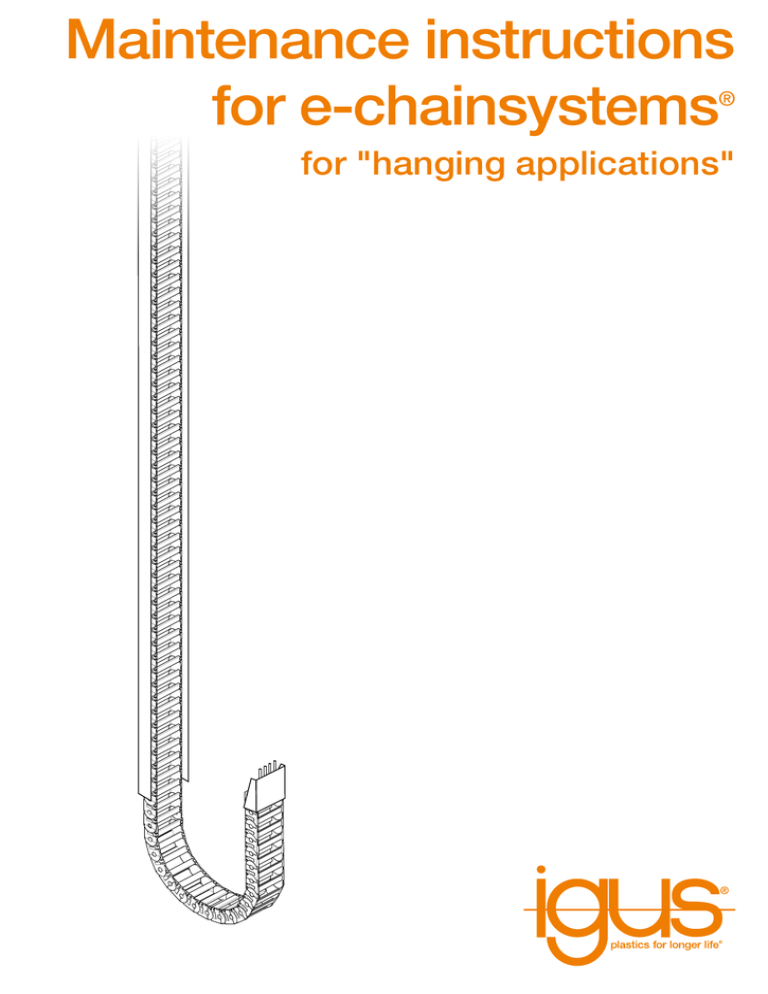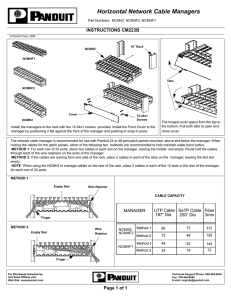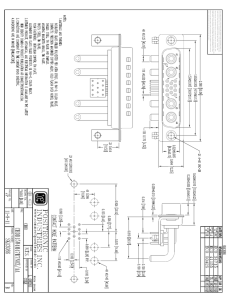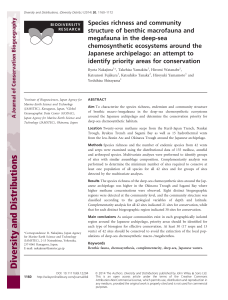507 KB
Anuncio

Maintenance instructions for e-chainsystems ® for "hanging applications" General rules ... General rules on the servicing and maintenance of igus® e-chainsystems® 1. 2. 3. 4. 5. Assembly and use must be in line with igus® drawings, specifications (assembly instructions) and catalogue details. If these are unavailable, please request them from igus® ([email protected], +49-2203 9649-800) Should modifications be necessary, please contact igus® to have them technically approved. igus® shall not accept any liability for damages resulting from modifications made without technical approval. When moving the e-chain® into the end position for the first time, closely monitor both of its ends: if the e-chain® is too short for the travel for any reason, it can break. The e-chain® and the guide trough must be correctly aligned with one another and straight. Correct functioning can otherwise not be guaranteed. The e-chain®, the working area of the e-chain® and the guide trough system of the e-chain® must remain free from foreign bodies, interfering edges and protruding parts at all times! For example: screws, screw heads, workpieces, pieces of wood, pallets etc. The guide troughs must be aligned with one another without an offset. You should check this particularly after maintenance work. Maintenance and inspections should take place at least once a year. What has to be maintained/inspected? 1. Moving end 2. Fixed end 3. Guide trough 4. energy chain® 5. Cables 6. Strain relief systems ... what is inspected? 1. Moving end XXIs the moving end plate as shown in the drawing? (See assembly drawing) XXIs the position in which moving end has been installed as shown in the drawing? (See assembly drawing) XXAre the central axis of the moving end and the overall travel of the e-chain® aligned with the central axis of the guide trough system? XXAre there any abnormalities (stress marks, damage, etc.)? XXMove the moving end to each of the end positions. Are there any abnormalities, such as scraping noises, impact noises etc.? 2. Fixed end XXIs the fixed end as shown in the drawing? (See assembly drawing) XXAre the connection elements on the fixed end screwed on correctly and tightly? XXAre the strain relief systems for the moving end side covered (deflector sheet), i.e. no edges or spikes protrude into the working area of the e-chain®? XXHas the fixed end module (GLSL) been screwed on correctly? 3. Guide trough (GLSL.F or GLSL.P) XXRule out any vertical or lateral shift of the trough segments XXRule out any bent trough segments XXRule out any overlapping of the trough segments XXRule out any protruding countersunk screws XXRule out any excessively large gaps between the trough segments XXIs the e-chain® guided without blocking the guide trough or putting any force on it? GLSL.F+ system: XXHave the GFK guide rails been attached to the chain supports at the bottom of the fixed end? Are GFK guide rails missing? Are rails missing or are there rails that are no longer correctly screwed on? (See also the GLSL.F+ assembly instructions) XXHave the chain supports and chain guides been correctly assembled? (See also the GLSL.F+ assembly instructions.) Are all supports and guides aligned on the vertical and horizontal axes? XXAre the chain supports and chain guides aligned with one another and with the crane rails? ...What is inspected? 4. e-chain® XXCheck for obvious wear or broken chain links XXAre all separators still present and currently in the correct place? (see drawing) XXAre all crossbars closed? XXAre all chain links connected? 5. Cables XXAre all cables positioned so as to be free along their radius, i.e. without pulling on the inner radius of the e-chain® or pressing on the outer radius? XXAre there any cables that are positioned in the e-chain® in a twisted or "wavy" form? XXAre there any corkscrewed cables? XXAre all cables positioned acc. interiour separation drawing of the e-chain®? XXIs there any obvious damage or wear to the outer jackets of the cables? 6. Strain relief systems XXStrain relief systems for the cables should be attached to both the fixed and the moving ends. Simple cable tie wraps do not suffice. Please use the correct strain relief clips. XXCheck if the strain relief clips are still secure enough (max. torque for CFX clamps = 1,5 Nm) and/or if the cables already show signs of having become loose over time. If you see any deviations, please consult igus®: [email protected] or +49-2203 9649-800 igus® GmbH Spicher Str. 1a 51147 Cologne Tel. +49-2203 9649-800 [email protected] www.igus.eu © 2016 igus® GmbH MAT0073512.20 As of 03/2016 Subject to technical alterations


